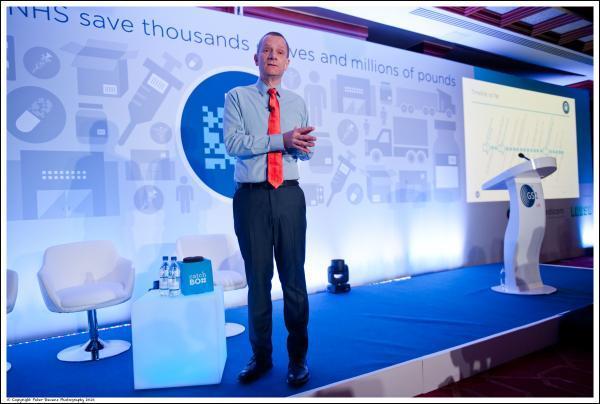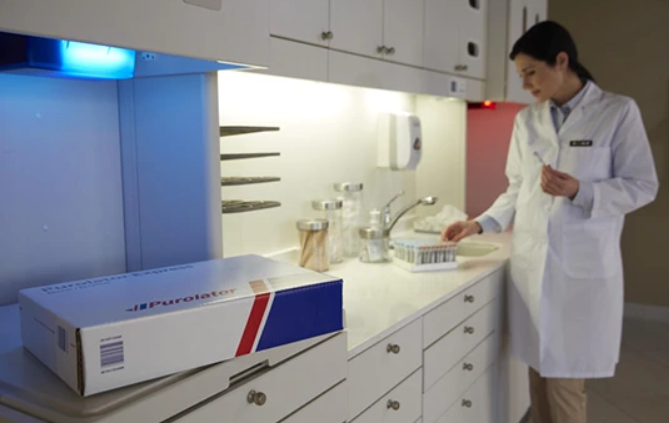
Glen Hodgson, Head of Healthcare at GS1 UK writes about the GS1 UK Healthcare Conference which took place on 12-13 April with over 350 professionals from the healthcare sector joining to hear about the latest progress from the Department of Health and Acute Trusts on GS1 implementation.
It’s a testament to the increasing momentum and commitment behind GS1 standards in the NHS that over 20 NHS Acute Trusts were represented, and that on stage there were Chief Executives, Directors of Nursing, Finance and Surgery, as well as senior leaders in the Department of Health and the General Medical Council.
Pat Mills, Commercial Director of the Department of Health led the call to action for the adoption of GS1 standards beyond the demonstrator sites. In his words, the GS1 programme is incredibly important, especially in these times of great austerity, and will provide a way of liberating some of the millions of pounds invested every year in the NHS. The demonstrator sites will prove that this value for money is real, but it’s through their implementation across England that real difference will be made.
Many of the Trusts’ representatives talked about how important GS1 standards are for their patients and staff, while emphasising the nursing and clinical benefits of implementing those standards. This was echoed by Kevin Downs and Keith Jones from Derby Teaching Hospitals NHS Trust and a call for greater clinical engagement was made.
A theme throughout the event was the great opportunity available, not just for demonstrator sites but for all NHS Acute Trusts across England to improve operational efficiency, patient safety and patient experience through GS1 standards. A clear priority for all is the patient, and the way that the GS1 programme can fundamentally improve their experience, and ultimately their safety, in every hospital in England.
The event’s headline speaker was Lord David Prior, Parliamentary Under Secretary of State for NHS Productivity, whose speech highlighted the potential for transformation that the GS1 programme offers to NHS Acute Trusts. He pointed out that in many industries the accuracy provided by barcodes is taken for granted but for the future of the NHS, getting really deep and accurate costing through barcodes will be hugely important. It’s important because, by most world standards, the NHS is right at the top but it has to do that with very little money.
As Lord Prior said, ‘the NHS is an efficient system that can do better’. This system will be improved through the GS1 programme by exposing unwarranted variation and that is how we’ll get the much needed clinical engagement that was emphasised as critical across both days of the conference.
Professor Terence Stephenson, Chair of the General Medical Council also emphasised that senior hospital doctors should engage in a leadership role in the GS1 program as the data it provides can support better clinical productivity and improve patient care. As he said, ‘If we get clinicians on board, we can ensure long term, sustainable improvement’.
Standardisation means more time for patients, better understanding of costs, better comparison of clinical performance and the exposing variations in clinical practice. It’s not just about finance or procurement ‘ it impacts the whole hospital. It’s the meaningful use of the data the standards collect.
And as the data saves the NHS money, it also saves lives.
For more information, please visit www.gs1uk.org/healthcare.


















